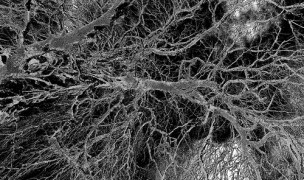 20 Terms
20 TermsHome > Industry/Domain > Astronomy > Planetary science
Planetary science
The scientific study of planets including Earth, moons, and planetary systems of the Solar System in particular and the processes that form them.
Industry: Astronomy
Add a new termContributors in Planetary science
Planetary science
silicon
Astronomy; Planetary science
An element with atomic number 14; symbol: Si. Silicon is the most abundant element besides oxygen in planets, and forms the basis for silicate minerals such as olivine, pyroxene, and plagioclase.
dissociation
Astronomy; Planetary science
The splitting apart of a molecule into its consituent atoms. For example, the splitting of carbon monoxide into carbon and oxygen or the splitting of water into hydrogen and oxygen when struck by ...
spectroscopy
Astronomy; Planetary science
The study of spectra. Every atom can only emit or absorb certain energies or wavelengths. Scientists use instruments called spectrometers to study the location and spacing of reflectance, emission, ...
isotopic dating
Astronomy; Planetary science
Technique to determine the age of a rock by measuring the last time the rock being dated was either melted or disturbed sufficiently to rehomogenize its naturally-occurring radioactive elements. This ...
right ascension (RA)
Astronomy; Planetary science
Celestial coordinate which is equivalent to the longitude of an object on Earth. The starting point for longitude on Earth is at Greenwich England, whereas in the celestial coordinate system it is at ...
solar system
Astronomy; Planetary science
The Sun and all the objects (planets, moons, asteroids, and comets) that orbit the Sun.
Featured blossaries
stanley soerianto
0
Terms
107
Blossaries
6
Followers
The Best Set-Top Box You Can Buy
 5 Terms
5 Terms

